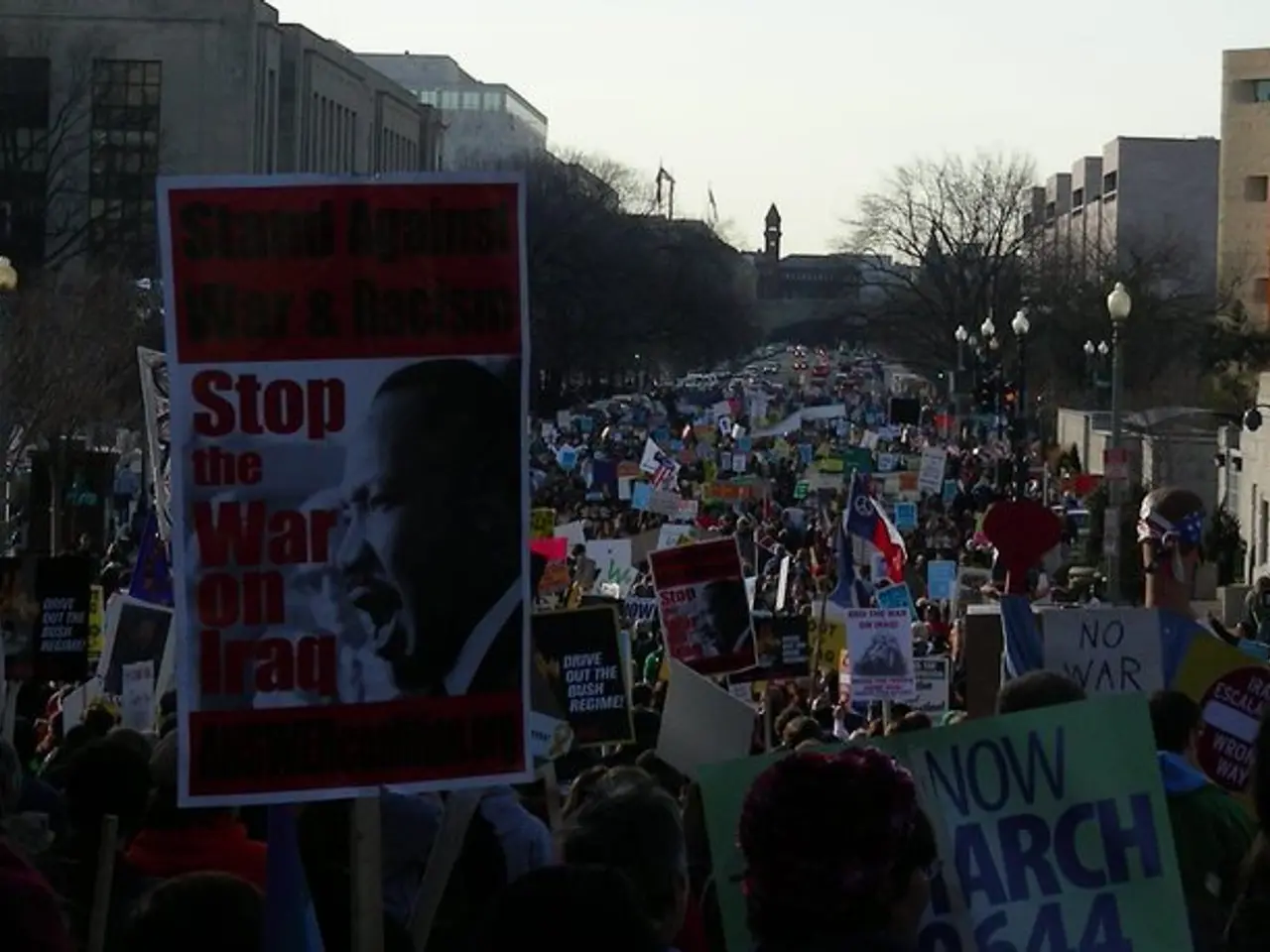Trump intensifies trade pressure by imposing a 35% tariff on Canadian imports
The Trump administration's tariff strategy, aimed at reversing trade imbalances and reviving U.S. manufacturing, has been the subject of much debate and legal scrutiny. The administration's approach, which includes imposing tariffs on various countries, has been based on several legal authorities, but the use of the International Emergency Economic Powers Act (IEEPA) is particularly noteworthy.
The IEEPA, traditionally used for sanctions rather than trade duties, has been the legal basis for the latest executive order implementing tariffs on Canadian goods and other countries. This move was prompted by a declared national emergency under the IEEPA to address the public health crisis caused by fentanyl and illicit drugs flowing across the northern U.S. border from Canada. The increased tariffs—from 25% to 35% on Canadian imports—are authorized as emergency economic measures to respond to this national security threat.
However, the use of IEEPA for tariffs is unprecedented, and this has led to potential legal challenges. Critics argue that Congress has the sole constitutional authority to levy tariffs, and while it has delegated some powers to the President, the IEEPA was never intended for broad tariff imposition. Legal experts view the declared national emergencies as contrived to bypass congressional approval and international trade rules.
The administration's tariff strategy also faces questions about presidential authority and consistency with trade law. Some lawsuits have already been filed in federal courts challenging the legality of the tariffs. Congress can terminate national emergencies under the National Emergencies Act, but attempts to do so have been politically blocked.
Affected trading partners may challenge the tariffs at the World Trade Organization (WTO) or through diplomatic negotiations, arguing the measures violate trade agreements like USMCA or WTO principles. The exclusion of USMCA-preferential goods indicates an attempt to maintain compliance with existing trade treaties, yet the retaliatory measures and higher tariffs risk escalating trade disputes.
In summary, Trump's executive order bases its tariffs on a declared national emergency under IEEPA addressing illicit drugs, but legal challenges focus on the unusual use of emergency powers for trade tariffs, separation of powers concerns, and potential conflicts with international trade law. The next key date is August 12, which the Trump administration sees as a possible deadline for a new trade deal with China, while Mexico has been granted a temporary reprieve from a proposed 30 percent hike on non-USMCA goods, extending the deadline by 90 days. The tariffs on steel and aluminum, as well as auto duties, remain in place for Mexico.
[1] [Sources] [2] [Sources] [3] [Sources]
- The controversial tariff strategy implemented by the Trump administration, using the International Emergency Economic Powers Act (IEEPA) as legal basis for the latest executive order, has been met with potential legal challenges due to the IEEPA's unprecedented use for trade tariffs, separation of powers concerns, and possible conflicts with international trade law.
- Critics assert that the administration's tariff strategy questionably employs emergency powers, with arguments that Congress, not the President, holds the sole constitutional authority to levy tariffs, and the IEEPA was never intended for broad tariff imposition.
- The administration's tariff strategy, via the IEEPA, has drawn attention in the realm of policy and legislation, politics, general news, and decentralized financing (Defi) and cryptocurrency (crypto) communities due to its potential impact on trade agreements (USMCA, WTO principles), war and conflicts (escalating trade disputes), and global economic policies.








